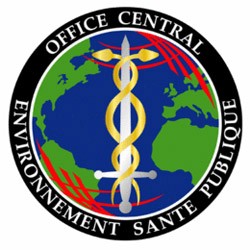No news yet on 2009 inquiry into Astana and Caisse d’Epargne teams
 Following last year’s Tour de France, it emerged that a department of the French police called OCLAESP (Central Office for the fight against environmental damage and for public health) was investigating one of the teams on the race.
Following last year’s Tour de France, it emerged that a department of the French police called OCLAESP (Central Office for the fight against environmental damage and for public health) was investigating one of the teams on the race.
Subsequent reports confirmed that the team in question was the Astana squad, with infusion kits being found in the medial waste left for disposal. The use of such kits is banned by WADA, making their use a sanctionable offence.
It was also reported that seven separate DNA traces were found on the kits. Levi Leipheimer left the race early on due to a broken wrist, suggesting seven out of the eight remaining riders could potentially be involved in the use of the kits.
The bulk of the riders on the Tour squad moved to the RadioShack squad over the winter, with only Alberto Contador remaining on the Kazakh team.
L’Equipe revealed in June that former Astana directors Johan Bruyneel and Alain Gallopin were questioned by OCLAESP investigators in May and April, respectively. Both denied any knowledge of the matter.
It also emerged that the Caisse d’Epargne team was under investigation for the possible use of “blood spinning,” also banned by WADA. The suspicions grew after insulin syringes were found during last year’s Tour and an analysis showed the presence of blood platelets.
 Now, according to a report in lavoixdessports, a representative of the OCLAESP has confirmed that the 2009 investigation is still ongoing, this statement explaining why there was no news before this year’s race.
Now, according to a report in lavoixdessports, a representative of the OCLAESP has confirmed that the 2009 investigation is still ongoing, this statement explaining why there was no news before this year’s race.
Colonel Thierry Bourret told the newspaper that he would not comment on a current case. However he spoke a little about the OCLAESP, saying that there is more than one person involved when any sportsman decides to dope.
“We realize that doping is similar in most successful cases to a new form of organized crime,” he stated.
“First of all, you have a prescriber, the person who gives a doping protocol. It could be a doctor who lost his way. Then, the supplier of products, most commonly diverted drugs. That could be done via stolen products or forged prescriptions. Sometimes you have a provider, one who brings the goods … Then a facilitator, because some things like blood transfusions cannot be done alone. And finally, someone who will help you monitor the parameters, making sure they are normal so that you may not be detected.”
With Interpol now involved in the current Floyd Landis enquiry, the OCLAESP investigation might tie in to the overall push to discover what exactly went on in the sport.